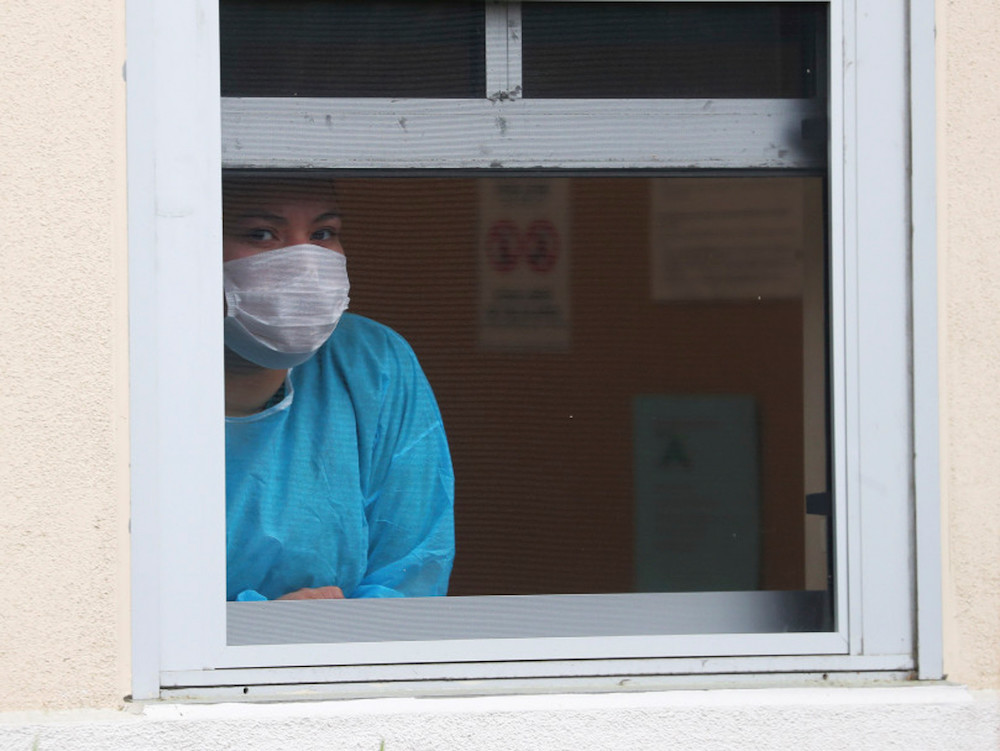Gov. Gavin Newsom said today the state is partnering with philanthropic groups to provide disaster relief to undocumented immigrants affected by the coronavirus who have been left out of other pandemic assistance programs.
Ten percent of California’s workforce is undocumented, Newsom said, and they are not eligible for unemployment insurance or aid through the federal stimulus package. The new $125 million Disaster Relief Fund will include $75 million in taxpayer funds and $50 million in philanthropic contributions to help undocumented workers affected by coronavirus secure a one-time payment of up to $500 per person or $1,000 per household.
“We feel a deep sense of gratitude for people who are in fear of deportation but are still addressing the essential needs of tens of millions of Californians,” Newsom said, pointing out that many work in essential sectors like health care, agriculture, food, manufacturing and construction.
Newsom also said today the state is significantly expanding staffing for the Employment Development Department to speed the pace of unemployment checks to all Californians who lost jobs due to the shelter-in-place order to slow the coronavirus pandemic. A new call center will launch Monday and will operate seven days a week. In addition, the state will begin making federal Pandemic Unemployment Assistance payments to self-employed workers at the end of April.
The state estimates about 150,000 undocumented adults will qualify for the disaster payments. About 2 million undocumented people are estimated to live in the state. Newsom said they paid more than $2.5 billion in local and state taxes last year.
“If you’re undocumented and you lose your job, you have no benefit, you have nothing to fall on,” said Angelica Salas, executive director for the Los Angeles-based Coalition for Humane Immigrant Rights.
Salas said that while the fund will be welcomed by many families, what would be most beneficial would be to integrate undocumented workers into the safety net program during this pandemic.
Still, simply acknowledging this population is a big move, Salas said.
The state also recently allowed for “presumptive eligibility” in its Medi-Cal program, allowing anyone who is uninsured, including undocumented people, to be tested and treated for COVID-19. The eligibility also means they can be treated in a health center or community clinic instead of a hospital emergency room, Newsom said.
Yet even as officials direct Medi-Cal enrollees to such clinics, concerns have been raised that they have very little capacity to test for coronavirus.
Mark Ghaly, California’s Health and Human Services Secretary, said today that health centers and clinics that “don’t traditionally have supplies first” will be made a priority as California ramps up testing. Over last weekend, for example, the state received a shipment of swabs vital to testing and those were distributed across the state, including at clinics, he said.
Clinics need swabs and tests, but they also need protective gear and more financial help, said Carmela Castellano-Garcia, president of the California Primary Care Association, which oversees about 1,400 nonprofit community health centers in the state.
Health centers, which largely serve low-income communities, have seen anywhere from a 25% to 50% drop in visits since the pandemic started.
“That’s half the revenue but still 100% of the expenses,” Naomi Fuchs, CEO of Santa Rosa Community Health, recently told CalMatters. “It is what we call an existential threat to the health center community.”
Telehealth appointments help tremendously, but they can’t save clinics, Castellano-Garcia said. Furloughs are happening and in big numbers. She said some clinic systems have reported furloughing between 350 to 400 employees.
Federal data shows 203 clinics in California have temporarily closed as of April 3. Those are likely mostly dental clinics and school-based health centers, but it’s still significant and probably only the first wave, Castellano-Garcia said.
Recently, California health centers received $192 million from the federal government as part of the Coronavirus Aid, Relief and Economic Security or CARES Act. But clinics, cumulatively, are losing about $60 million a week, so the money helps only for a few weeks, Castellano-Garcia said.
Editors’ note: Several philanthropic organizations supporting California’s undocumented immigrant disaster relief fund are also financial supporters of CalMatters, a nonprofit media venture. Among them: Emerson Collective, the Chan Zuckerberg Initiative, Blue Shield of California Foundation, The James Irvine Foundation and the California Wellness Foundation. Find a full list of CalMatters’ major donors here.
